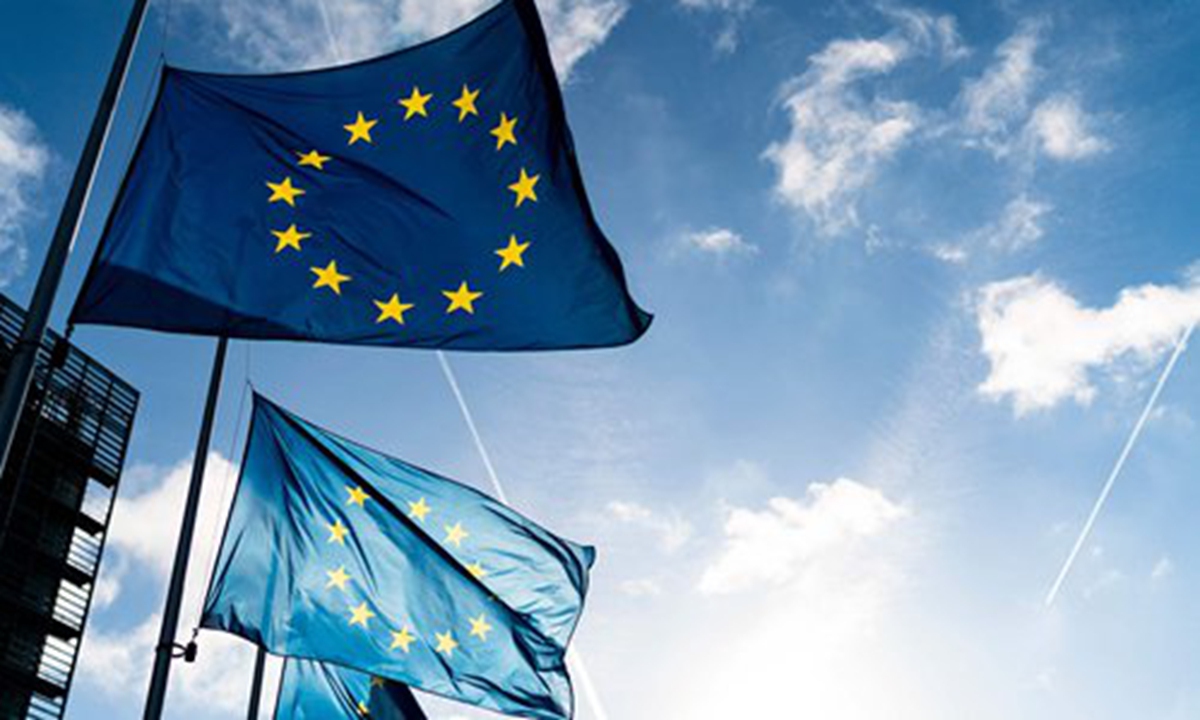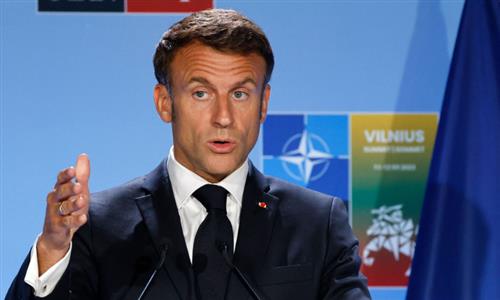
Photo: VCG
Western attitudes toward Asia can sometimes have an uncomfortable colonial feel, like the old European imperial powers which thought they could bring civilization and Christianity to the East, on the heels of conquest. It can be patronizing and even racist to think that your nation's way of life, your culture and beliefs are superior to those of another. Today, this patronizing attitude can still be seen in the way the West does business.Last week, the European Union's third annual EU Indo-Pacific Ministerial Forum was staged in Brussels, bringing together almost 70 countries - including the Association of Southeast Asian Nations. It was billed publicly as "an opportunity to further strengthen the EU-ASEAN Strategic Partnership in trade, climate change, security and more." They probably mean "partnership" in its loosest sense as the forums have always been in Europe - Paris in 2022 and Stockholm last year - but of course this is a European show.
The one-day event was chaired by Josep Borrell, the EU's foreign affairs and security chief. In his opening remarks, he spoke of the "cooperation and inclusiveness" underpinning the forum. That inclusiveness has never included China, which, for the third year running, was not invited to participate, despite being the major presence in the Indo-Pacific region and the EU's largest trading partner. However, even if Beijing was not asked to participate, China was very much on the minds of delegates.
A joint statement at the end of the meeting called on unnamed parties to show "self-restraint in the conduct of all activities" in the South China Sea: a veiled attack on China. It added that all countries should "avoid any unilateral actions that endanger peace, security and stability in the region." Neither Taiwan island nor the Taiwan Straits were named, but the implication was clear. Nowhere does it acknowledge that China regards the Taiwan question as an internal one, and that the interference of other nations is not welcomed. But interference is what the summit was about, at least as far as the EU is concerned.
A closing press release from the bloc said that "growing tensions in the South and East China Seas and in the Taiwan Straits" meant the EU and Asia must work together "to reinforce respect for international law and the rules-based international order, promote a free and open Indo-Pacific and address global challenges." Obviously, they mean China. Would a community of 27 nations, be involved in a potential proxy war on its own doorstep, preparing to pick a fight with China? For decades, the relationship between Europe and the Indo-Pacific region was fundamentally about mutual trade and economic interests. Today, security concerns also loom large on the agenda, with the EU focusing its attention on China. Europe's statements on the forum stressed its willingness to provide support, pledged to maintain so-called freedom of navigation in the South China Sea and vowed to implement the measures of the United Nations Convention on the Law of the Sea. All of this plays into the dominant Western narrative about the geopolitical state of things in the Indo-Pacific, and is clumsy code for confronting China.
What the EU is doing is growing its geopolitical reach into the Indo-Pacific. The point at which this most clearly happened was the release of its Indo-Pacific Strategy in 2021. Of course, the most obvious presence has been that of the US Navy, which seems addicted to repeated provocations.
Through the EU Indo-Pacific Ministerial Forum, Europe is effectively urging the Asian nations to oppose China, supposedly for the benefit of all. It portrays itself as an honest broker, while all the time it is sowing discord. How can it not be, when 22 of its members are intimately aligned with the US through their membership of NATO? That's 81 percent of EU countries bound by the treaty to perhaps follow where America might lead, regardless of what Asia might think. So, those who align with Europe also get Uncle Sam.
ASEAN nations must have the wisdom to see through the EU mind-set which says there are no nuanced considerations in the conflicts between nations, only a choice of right or wrong (or a Western interpretation of what is right and wrong). Many ASEAN members will have been disappointed that their call for a cease-fire in Gaza and the release of all detainees was pathetically watered down in the forum's final statement, but they will not have been surprised: the EU got its way, ASEAN didn't. The West has an unenviable track record for getting things wrong, whether it's NATO in Libya and Afghanistan or the US, UK and others in Iraq, and, of course Ukraine. What will it get wrong next?
In a talk last November at Jakarta's Centre for Strategic and International Studies, Indonesia's defence minister Prabowo Subianto spoke of his personal fondness for Europe, but complained about its "double standards" in regard to trade deals and human rights, adding: "There's a shift in the world. We don't really need Europe anymore, to be very frank."
The author is a journalist and lecturer in Britain. opinion@globaltimes.com.cn

